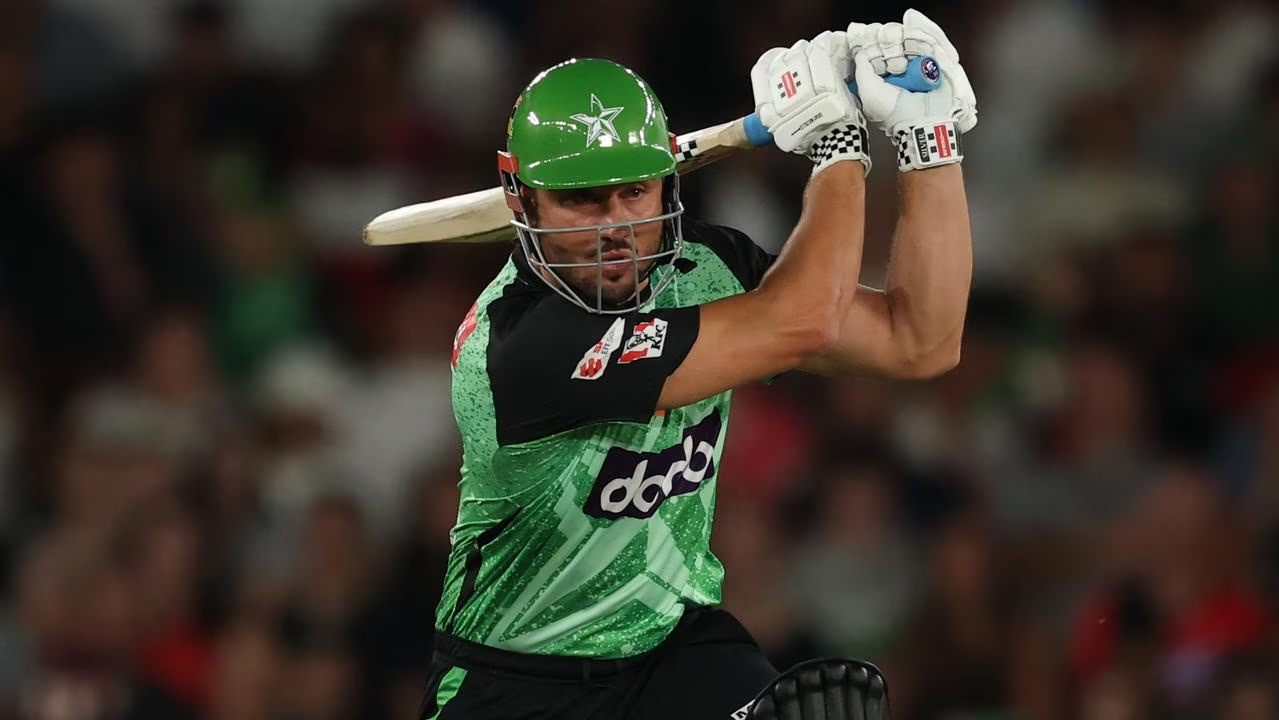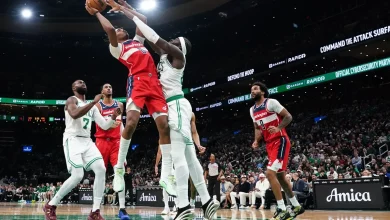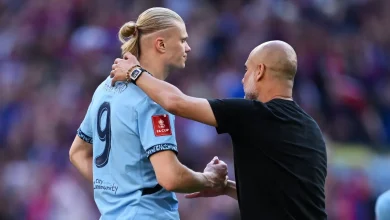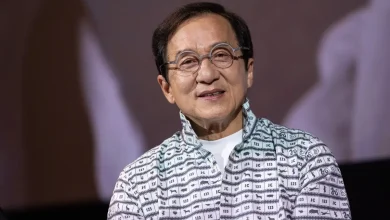Universal Is Ready to ‘Figure Out’ More Wicked Sequels
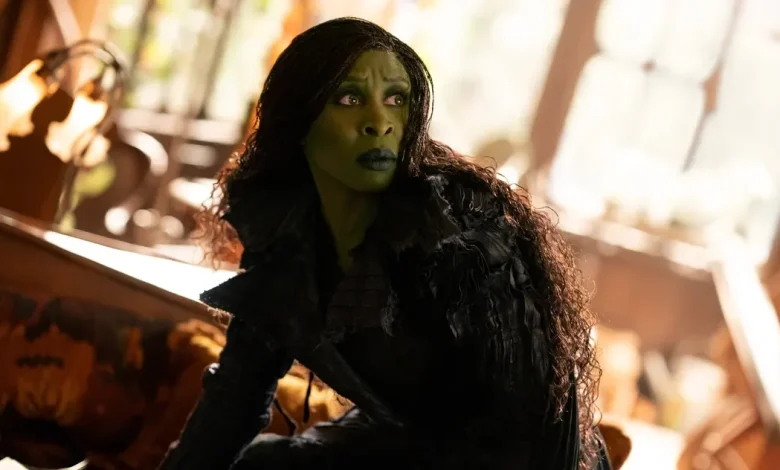
Photo: Giles Keyte/Universal Pictures
To paraphrase the movie’s Ariana Grande–sung second-act opener, “Thank Goodness,” Universal Pictures — and, indeed, the entire cinema ecosystem — simply couldn’t be happier about Wicked: For Good. Over its opening weekend in 4,115 North American theaters, the don’t-call-it-a-sequel part deux to last year’s pre-Thanksgiving smash Wicked took in a massive $150 million to become the top-grossing Broadway-musical adaptation of all time (thereby throwing a bucket of water on the existing record of $112.5 million held by the first Wicked). Defying box-office gravity that has financially downed any number of star-driven awards-season movies — Dwayne Johnson’s The Smashing Machine; Sydney Sweeney’s Christy; Glen Powell’s Stephen King remake, The Running Man; and the Jennifer Lopez–fronted fellow musical adaptation Kiss of the Spider Woman, among this fall’s more notable flops — Wicked: For Good now stands as the second-biggest opening of 2025 (behind A Minecraft Movie’s $162 million haul in April but displacing Disney’s “live action” remake of Lilo & Stitch for the silver-medal spot).
Moreover, thanks to hundreds of branded product tie-ins in conjunction with a mind-bending array of Wicked-themed challenges, appearances, TV specials, and an official podcast, the continuing adventures of the erstwhile Wicked Witch of the West, Elphaba (played by Cynthia Erivo), and Glinda the Good (Grande) delivered Fandango’s highest ticket presales of the year en route to a thrillifying $226 million in worldwide ticket sales. All those cross-promotions acted as a force multiplier. They helped Wicked: For Good ripple across public consciousness with the collective delirium of a magic spell — arriving more like some pistachio-and-pink-hued cultural event rather than just another holiday movie title.
Released almost exactly 365 days ago, the first Wicked installment ended up as 2024’s fifth-highest-grossing movie. It racked up ten Academy Award nominations (winning the Oscars for Costume Design and Production Design) and took in $758.7 million globally (versus a $150 million budget). Now, with robust ticket sales for Wicked: For Good expected to continue through the Christmas movie corridor, perhaps inevitably its studio distributor, Universal, is already imagineering a sequel or a spinoff within what would be a de facto Wizard of Oz Cinematic Universe. “Because of Wicked’s success but also the fanship, we have almost a responsibility to figure out how we can continue in this universe,” Universal’s chief marketing officer, Michael Moses, tells Vulture. “Have we figured it out yet? No. But there are things underway.”
Arriving just weeks removed from the worst October box-office returns in more than a quarter-century — and backdropped by Universal’s parent company, Comcast, submitting a takeover offer for the film and streaming assets of crosstown rival, Warner Bros. Discovery — Wicked: For Good’s massive “playability” was greeted as a shot in the arm for a beleaguered film industry. A saving grace during its time of need. But to hear Universal executives tell it, the choice to release the $150 million-budgeted part two a year after the first installment was never a foregone conclusion. “We did have conversations of ‘Should it be a two-year interval? Should it be a six-month interval?’” Moses says. “We just kind of landed on successive Thanksgivings. It’s a movie you can take everyone to. It doesn’t need summer — with kids out of school. You can get the whole family. And it can be that kind of family event.” (Around 70 percent of the WFG’s opening-weekend audience was female, according to exit-polling data.)
Over the years, Hollywood has had a mixed track record of success with big-screen adaptations of beloved Broadway musicals. For every Grease (a generational touchstone with a soundtrack that topped the pop charts for 12 weeks in 1978) or Mamma Mia! (which took in $706.7 million at the box office four decades later), you have an unmitigated fiasco like Universal’s own 2019 adaptation of the Andrew Lloyd Webber blockbuster Cats. The $95 million musical faced unending critical brickbats, became a national punch line, and slunk from theaters after collecting a disastrous $78.3 million in ticket sales.
With the first Wicked, however, Universal knew it was dealing with an altogether higher-caliber offering than Cats. As if to underscore that point, the studio set about establishing an unprecedented array of deals with some 450 promotional partners — Lexus, Betty Crocker, Voluspa, Absolut vodka, Bloomingdale’s, H&M, Cambridge Satchel, and Crocs among them. A year later when it came to Wicked: For Good, proof of concept with corporate America had already been established. And the studio signed around 90 more “official partners” offering Wicked-branded services and retail products while providing all-crucial prerelease awareness for the movie.
And in addition to traditional marketing expenditures like billboards, movie trailers, and commercial spots during sporting events, Universal unleashed a green-and-pink-tinged torrent of Wicked-affiliated promotional content across streaming, TV, and video games. In October, Wicked and WFG director Jon M. Chu guest-judged a special “Wicked Night” episode of Dancing With the Stars, in which every dance was set to songs from the films. On November 6, Universal’s corporate sibling NBC aired Wicked: One Wonderful Night, a two-hour musical event featuring Erivo and Grande (as well as original Broadway castmates Idina Menzel and Kristin Chenoweth) performing songs from Wicked and previewing songs from Wicked: For Good. “It was the kind of old-fashioned variety special that people don’t do anymore,” Moses notes. “We saw a real surge in ticket sales and social-media activity right after.” (The special became available to stream on Peacock the following day.)
There was a LEGO Masters challenge in which contestants created “Ozian-spell-inspired builds” and a Wicked-themed episode of Project Runway. Grande and Erivo stopped by the Werk Room on RuPaul’s Drag Race All Stars to urge teamwork and point out the futility of labeling “a good witch and a wicked witch.” According to Universal, Erivo’s “Fiyero scream” during the song “No Good Deed” is on its way to achieving breakout virality.
As for targeting the ever-slippery 25-and-under demographics, Universal executives struck a first-of-its-kind deal with Roblox. Earlier this month, the online-gaming platform began hosting branded game experiences, including the Brookhaven x Wicked: For Good event (during which players can explore a virtual Wicked castle, access an Emerald City photo generator, and meet Glinda and Elphaba while discovering hidden story lines). Over its first weekend, that in-game point of interest attracted 32 million unique visits that ultimately generated 130 million trailer views within the platform. “To build a cultural imperative, you have to be everywhere for audience members,” Moses says. “For Gen Z and Gen Alpha, the Roblox integrations were really important because they’re so hard to reach in traditional ways.”
But in IP-crazy Hollywood, success necessarily begets sequels (if not spinoffs and reboots and prequels). Following the New York premiere of Wicked: For Good earlier this month, the original Broadway musical’s composer-lyricist, Stephen Schwartz, said that he and Tony winner Winnie Holzman (co-writer of both films) “are doing some work right now on ideas that aren’t a sequel to Wicked.”
“I think the Glinda and Elphaba story feels complete — but there are other aspects that could be explored,” Schwartz told the industry newsletter The Ankler. “Gregory Maguire, the original Wicked novelist, has several books, for example. But there’s another idea that Winnie and I are discussing: not a sequel, but an adjunct. Let me put it that way.”
Universal executives, for their part, are fully aware the franchise is resonating with fans on an unusually deep level. “Wicked and Wicked: For Good are two examples of how getting the message out isn’t just buying media but crafting movies as events,” says Universal’s president of domestic theatrical distribution, Jim Orr. “And not just theatrical events but cultural events.”
See All

